Time to say hello?
Labels: blind, gelb, la cieca ci guarda la cieca ci vede, levine

Labels: blind, gelb, la cieca ci guarda la cieca ci vede, levine
Labels: critic, levine, little stevie, met, our own
Labels: 2009, 2010, alagna, gheorghiu, jonas kaufmann, levine, met, scandale
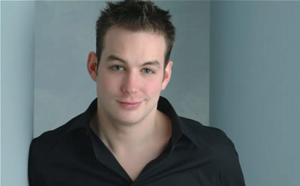 La Cieca is suffering a mild case of Empty Nest Syndrome this afternoon, since she just found out that parterre.com fave Stephen Costello is all grown up. It turns out that Stephen is the "TBA" who will sing Edgardo (his very first!) in Lucia di Lammermoor at the Met on October 25. In this spectacular followup to his scheduled house debut as Arturo next week, Stephen is joined by Annick Massis, Mariusz Kwiecien and John Relyea in a performance conducted by James Levine and broadcast live on Sirius.
La Cieca is suffering a mild case of Empty Nest Syndrome this afternoon, since she just found out that parterre.com fave Stephen Costello is all grown up. It turns out that Stephen is the "TBA" who will sing Edgardo (his very first!) in Lucia di Lammermoor at the Met on October 25. In this spectacular followup to his scheduled house debut as Arturo next week, Stephen is joined by Annick Massis, Mariusz Kwiecien and John Relyea in a performance conducted by James Levine and broadcast live on Sirius.Labels: la cieca ci guarda la cieca ci vede, levine, met, stephen costello, telecast
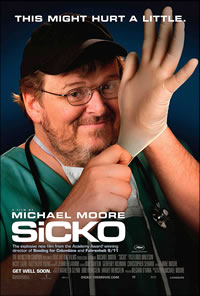 The nice people at the Verbier Festival in Switzerland cannot be happy about last minute changes to this past weekend's concert schedule caused by late cancellations by James Levine and Renée Fleming. Maestro Levine, advertised for concerts on July 20 and 22, tendered his regrets on July 16, noting "My doctors have strongly advised me not to travel but to stay calm and collect my energies." Also collecting her energies (or whatever) was La Fleming, who pulled out of the the July 22 performance on four days' notice, i.e., July 18.
The nice people at the Verbier Festival in Switzerland cannot be happy about last minute changes to this past weekend's concert schedule caused by late cancellations by James Levine and Renée Fleming. Maestro Levine, advertised for concerts on July 20 and 22, tendered his regrets on July 16, noting "My doctors have strongly advised me not to travel but to stay calm and collect my energies." Also collecting her energies (or whatever) was La Fleming, who pulled out of the the July 22 performance on four days' notice, i.e., July 18.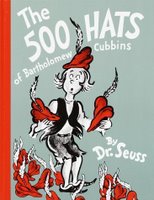 Iconic Ira Siff temporarily puts aside performing and his busy teaching schedule this summer to direct Cosi fan tutte with the Tanglewood Music Center young artists, in collaboration with Maestro James Levine. The Mozart comedy runs August 11-14. La Cieca further hears whispers that due to the overwhelmingly positive response to Ira's guest appearances on last year's Met/Sirius broadcasts, he will be promoted to co-host status opposite Margaret Juntwait on that series beginning this fall.
Iconic Ira Siff temporarily puts aside performing and his busy teaching schedule this summer to direct Cosi fan tutte with the Tanglewood Music Center young artists, in collaboration with Maestro James Levine. The Mozart comedy runs August 11-14. La Cieca further hears whispers that due to the overwhelmingly positive response to Ira's guest appearances on last year's Met/Sirius broadcasts, he will be promoted to co-host status opposite Margaret Juntwait on that series beginning this fall.Labels: broadcast, crossover, la cieca ci guarda la cieca ci vede, levine, met, sirius
Labels: countertenor, daniels, gay gay gay gay gay, great homosexuals of history, levine, met
Labels: alagna, domingo, first emperor, gelb, levine, met, midgette, mortier, nyco
Labels: 2012, barihunk, bel canto, damrau, dessay, diva, filth, fleming, florez, gala, gelb, gheorghiu, giordani, la cieca ci guarda la cieca ci vede, levine, met, netrebko, villazon
 This is the biggest limb La Cieca has ever gone out on:
This is the biggest limb La Cieca has ever gone out on:Labels: 2011, 2012, la cieca ci guarda la cieca ci vede, levine, met
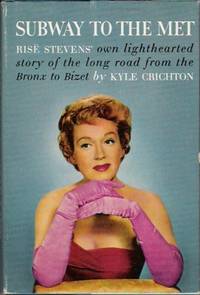 6:00 AM Offenbach: Les Contes D’Hoffmann. 12/3/55 Monteux; Tucker, Peters, Stevens, Amara
6:00 AM Offenbach: Les Contes D’Hoffmann. 12/3/55 Monteux; Tucker, Peters, Stevens, Amara 6:00 AM Berlioz: Benvenuto Cellini. 12/27/2003 Levine; Bayrakdarian, Giordani, Del Carlo, Carfizzi
6:00 AM Berlioz: Benvenuto Cellini. 12/27/2003 Levine; Bayrakdarian, Giordani, Del Carlo, CarfizziLabels: bumbry, damrau, florez, giordani, levine, met, netrebko, pav, sirius
These broadcasts will be streamed with "support from RealNetworks®, the leading creator of digital media services." In honor of this innovation, La Cieca will host one of her legendary live chats tomorrow night during the Rigoletto streaming broadcast. Check back on parterre.com Wednesday afternoon for a link to the chat page.
Labels: damrau, first emperor, giordani, levine, met, millo, netrebko
Labels: levine, scotto, tfpdafoaitfoe, voigt
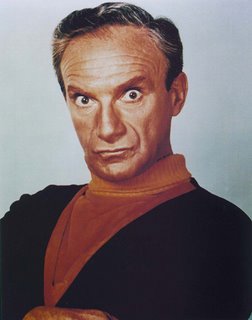 "England is obsessed with the cutting edge, the new thing, and if you're as old as I am, you're assumed to be dead - and actually made to be dead in the end. It's too late for people to ask me. If they asked me now, it would be three or four years ahead. I'll be 74 then and I won't want to be sitting in hotel rooms, getting on aeroplanes, getting visas and putting my finger on to immigration officers' testing boards," Miller whinged in an interview with the Guardian Unlimited back then, adding that he would devote his declining years to the fabrication of metal sculpture.
"England is obsessed with the cutting edge, the new thing, and if you're as old as I am, you're assumed to be dead - and actually made to be dead in the end. It's too late for people to ask me. If they asked me now, it would be three or four years ahead. I'll be 74 then and I won't want to be sitting in hotel rooms, getting on aeroplanes, getting visas and putting my finger on to immigration officers' testing boards," Miller whinged in an interview with the Guardian Unlimited back then, adding that he would devote his declining years to the fabrication of metal sculpture.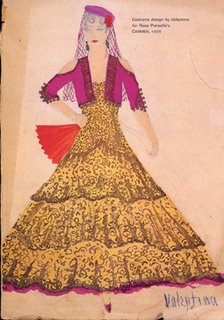 Carmen (1/9/37) Papi; Ponselle, Bodanya, Rayner, Huehn
Carmen (1/9/37) Papi; Ponselle, Bodanya, Rayner, Huehn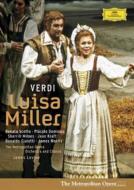 After more than a quarter of a century, Renata Scotto gets the last word over that silly queen who made a career of disrupting her Met performances. The DVD of the "Live from the Met" telecast of Luisa Miller was released today, and is available at Amazon.com at a 30% discount off the list price. This is the performance of January 20, 1979, during which Fernando or whatever her name was shrieked "Brava Maria Callas!" in the instant of silence before Scotto launched into "Lo vidi, e 'l primo palpito." No word so far as to whether the DVD preserves this non-Verdian interpolation, but the important news here is that this Luisa Miller is one of the triumphs of the early James Levine era at the Met, with Placido Domingo, Sherrill Milnes, Bonaldo Giaiotti, James Morris and of course La Scottissima herself in A+ form. If memory serves (remember, it's been 25 years since La Cieca's weary eyes have feasted on this video), the live camerawork is far simpler and more immediate than the overly tweaked fussiness that plagued the Brian Large extravaganzas of the 1980s.
After more than a quarter of a century, Renata Scotto gets the last word over that silly queen who made a career of disrupting her Met performances. The DVD of the "Live from the Met" telecast of Luisa Miller was released today, and is available at Amazon.com at a 30% discount off the list price. This is the performance of January 20, 1979, during which Fernando or whatever her name was shrieked "Brava Maria Callas!" in the instant of silence before Scotto launched into "Lo vidi, e 'l primo palpito." No word so far as to whether the DVD preserves this non-Verdian interpolation, but the important news here is that this Luisa Miller is one of the triumphs of the early James Levine era at the Met, with Placido Domingo, Sherrill Milnes, Bonaldo Giaiotti, James Morris and of course La Scottissima herself in A+ form. If memory serves (remember, it's been 25 years since La Cieca's weary eyes have feasted on this video), the live camerawork is far simpler and more immediate than the overly tweaked fussiness that plagued the Brian Large extravaganzas of the 1980s.
Labels: first emperor, fleming, florez, levine, met, netrebko
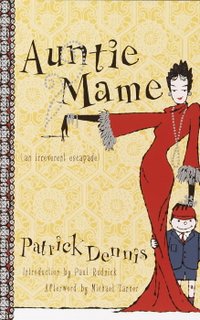
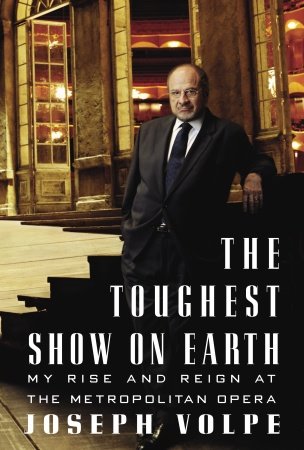 Volpe's rise from middle management to top dog (when he finally claimed Bing's old office) hinged on a series of coincidences. First came the death of intendant-to-be Goeran Gentele, leaving a lacuna hastily plugged with the semi-competent Schuyler Chapin, first of several weakish General Managers who allowed Bing's centralized power to dissipate. Meanwhile, Rafael Kubelik deserted the newly-created post of Music Director, sweeping the young James Levine into power. Volpe found himself allied with the volatile new Director of Productions John Dexter, who relied on Volpe to get things done in the notoriously entropic Met bureaucracy.
Volpe's rise from middle management to top dog (when he finally claimed Bing's old office) hinged on a series of coincidences. First came the death of intendant-to-be Goeran Gentele, leaving a lacuna hastily plugged with the semi-competent Schuyler Chapin, first of several weakish General Managers who allowed Bing's centralized power to dissipate. Meanwhile, Rafael Kubelik deserted the newly-created post of Music Director, sweeping the young James Levine into power. Volpe found himself allied with the volatile new Director of Productions John Dexter, who relied on Volpe to get things done in the notoriously entropic Met bureaucracy.hated the flat silver walls that Dexter and the designer, David Reppa came up with [for a production of Don Carlo], but she bided her time until after Dexter left the Met. Once he did, the scenery department, at her insistence, redid the walls with an elaborate pattern more in keeping with King Philip's -- and her -- taste.Volpe also allowed a more notorious benefactor to dictate that the booking operator at the Met's onsite restaurant answer the phone with, "Good afternoon, Vilar Grand Tier Restaurant," as if seeing the "V" word stenciled all over the walls wasn't enough. Volpe insists that he and Alberto Vilar "had little personal contact," and with crystal clear hindsight, notes that Vilar "always seemed to be harboring secrets . . . . I wondered when all this would go up in smoke." But he didn't let that stop him from allowing Vilar to act as if he ran the place.
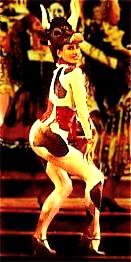 La Cieca has just learned the scheduled roster and repertoire for the Volpe Farewell Gala to be performed on Saturday, May 20 (and, if all this music stays in the show, part of May 21 as well.) Deborah Voigt will open the program with special material by Ben Moore, accompanied by Brian Zeger. The first of the James Levine stand-ins, Valery Gergiev, will then conduct selections from Ruslan and Ludmilla and Tannhaeuser. (Further baton duties for the evening are shared among Marco Armiliato, James Conlon, Plácido Domingo, Peter Schneider and Patrick Summers.)
La Cieca has just learned the scheduled roster and repertoire for the Volpe Farewell Gala to be performed on Saturday, May 20 (and, if all this music stays in the show, part of May 21 as well.) Deborah Voigt will open the program with special material by Ben Moore, accompanied by Brian Zeger. The first of the James Levine stand-ins, Valery Gergiev, will then conduct selections from Ruslan and Ludmilla and Tannhaeuser. (Further baton duties for the evening are shared among Marco Armiliato, James Conlon, Plácido Domingo, Peter Schneider and Patrick Summers.)Labels: alagna, dessay, fleming, florez, gala, gelb, giordani, levine, met, nyco, pav, voigt
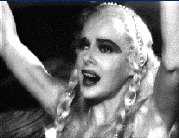 "Not since Delia Rigal," comments one of La Cieca's regular correspondents, referring to the ongoing (not to mention inscrutable) publicity juggernaut for soprano Erika Sunnegårdh. Now she's headlining a revised concert program for the Met Orchestra at Carnegie Hall on May 14. According to an "URGENT" press release sent out yesterday, La Sunnegårdh will be heard in three operatic excerpts by Puccini, Mozart and Wagner. Her assisting artists on the program, Ben Heppner and Rene Pape, each will sing two arias. Changes to the original roster for this concert include James Conlon substituting for James Levine, Giacomo Puccini for Johannes Brahms, and Piotr Illitch Tchaikowsky for Charles Wuorinen. That's at a $155 top, by the way. See you there?
"Not since Delia Rigal," comments one of La Cieca's regular correspondents, referring to the ongoing (not to mention inscrutable) publicity juggernaut for soprano Erika Sunnegårdh. Now she's headlining a revised concert program for the Met Orchestra at Carnegie Hall on May 14. According to an "URGENT" press release sent out yesterday, La Sunnegårdh will be heard in three operatic excerpts by Puccini, Mozart and Wagner. Her assisting artists on the program, Ben Heppner and Rene Pape, each will sing two arias. Changes to the original roster for this concert include James Conlon substituting for James Levine, Giacomo Puccini for Johannes Brahms, and Piotr Illitch Tchaikowsky for Charles Wuorinen. That's at a $155 top, by the way. See you there?Labels: levine
 And is La Cieca the only one who was puzzled by the blurb for Luisa Miller in the Met's Sunday Times ad? The cast for opening night is listed as Barbara Frittoli, Irina Mishura, Neil Shicoff, Carlos Alvarez, James Morris and Phillip Ens. But the copy reads, "Three of the world's greatest Verdi singers star . . ." So which of these six artists are included in that trio of "greatest" and which are just along for the ride? How is that statement complicated by the defection of Barbara Frittoli from the cast earlier this week? Would the corrected ad state "two of the world's greatest Verdi singers? [emphasis added]" Or would it remain "three?" And would that "three" be assumed to include Veronica Villaroel, who is jumping in as Luisa? And can you tell that La Cieca's day job is at a law firm?
And is La Cieca the only one who was puzzled by the blurb for Luisa Miller in the Met's Sunday Times ad? The cast for opening night is listed as Barbara Frittoli, Irina Mishura, Neil Shicoff, Carlos Alvarez, James Morris and Phillip Ens. But the copy reads, "Three of the world's greatest Verdi singers star . . ." So which of these six artists are included in that trio of "greatest" and which are just along for the ride? How is that statement complicated by the defection of Barbara Frittoli from the cast earlier this week? Would the corrected ad state "two of the world's greatest Verdi singers? [emphasis added]" Or would it remain "three?" And would that "three" be assumed to include Veronica Villaroel, who is jumping in as Luisa? And can you tell that La Cieca's day job is at a law firm?